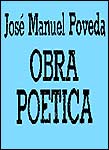4.1.1.6 The poetic work of José Manuel Poveda (1888 – 1926)

José Manuel Poveda had greater enthusiasm for the innovative endeavor than Regino E. Boti, but both shared a common foundation of ideas regarding the need to get the stagnant wheel of Cuban poetry moving, mired in neocolonial mud, also held back by the deep-rooted rust of fin-de-siècle romanticism, which was irremediably declining after reaching the peak of its expressive possibilities.
His first printed poem appeared in “El Estímulo” around 1905, a magazine he had founded in the Republic with the collaboration of other writers. He also participated in “Arpas Cubanas,” but these constitute his preliminary pieces, where a distinctive poiesis has not yet been consolidated.
In “Versos precursores” (Precursor Verses), from 1917, we can already see the traces of his meetings and correspondence with Regino E. Boti and others, revolving around the theme of the transmutation—not transubstantiation, since these poets focused on rescuing the best of the Cuban poetic tradition, José Martí, and a perhaps excessive emphasis on the figure of Julián del Casal—of the island’s poetic work. However, Poveda was not a supporter of modernism, which he saw as already exhausted in its expressive formulas.
Although Poveda explored dissimilar thematic lines – generally within the metrical structure of verse or poetic prose, but rarely in free verse – the predisposition towards death and helplessness, an immanent spiritual fragility or detachment from reality, which the poet perhaps tries to conjure with an effort of conduct but which can even be associated with his early death, is intelligible in his work.
The author also ventured into the realm of narrative, with several stories that fall short of the aesthetic heights of his poetry. The perhaps unfinished manuscripts of his novel were burned by his wife after his death, which skews the study of his output in this regard. However, some of his prose did survive, especially his essayistic and journalistic works.
In terms of journalism, in addition to “El Estímulo”, he collaborated with other periodical publications published in different provinces of the country: La Voz del Pueblo, El Managuí, El Progreso, Urbi et Orbe, La Liga, El Moderado, La Opinión, El Gorro Frigio, Oriente, Revista de Santiago, Cuba y América, El Pensil, Renacimiento, La Independencia, Camaguey Illustrated, Oriente Literario, Minerva, El Estudiante, Orto, El Fígaro, Letras, El Cubano Libre, Juvenil, Mercurio, Heraldo de Cuba, Cuba Contemporánea, Labor Nueva, La Defensa, La Antorcha, La Nación, among others. He also founded the Society of Literary Studies and, now defunct, the National Art Action Group.








